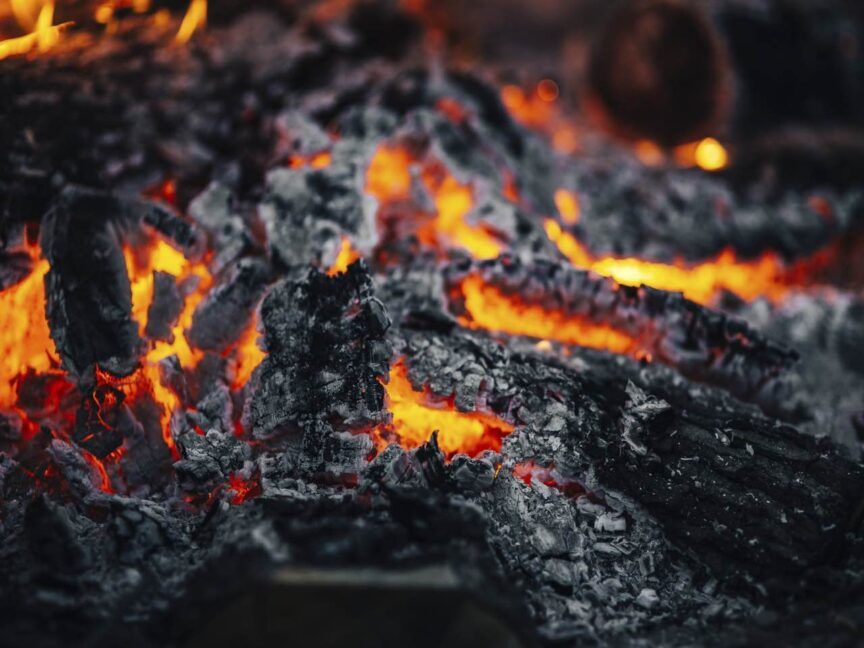Domenico Rea e Vincenzo Gemito: la loro arte è viscerale, come magma in eruzione.
Domenico Rea e Vincenzo Gemito sono due artigiani che, in parole e creta, hanno modellato la storia e le figure che abitano i nostri budelli estesi tra il mare e la collina, oltre il confine delle mura antiche, dilatati, quasi, a grattare i lidi e le pendici del Vesuvio e dei Lattari, come topi che rosichino un raggiante e aspro formaggio.
La loro arte è viscerale, magma in eruzione. Ho qui tra le mani la prima edizione di Spaccanapoli, il libro con cui Rea esordì nel ’47, a ventisei anni, uscito nella collana “La Medusa degli Italiani” edita da Mondadori. È un libro fragile al tatto, di carta semplice, assai ingiallita: il tempo non gli ha giovato. Nessuna illustrazione, solo una copertina arancione e la testa della Gorgone, a marchio dell’editore. È con questo esile volume da trecento lire che Rea inizia a pubblicare i suoi racconti “al lampo di magnesio”, com’ebbe a definirli Emilio Cecchi: simili a fotografie, le prose di Rea illuminano e poi svaniscono la realtà, questo mondo consumato, “divorato dai desideri carnali e dall’ansia del possesso”, uscito maceria e scheletro dalla guerra. Rea parla di plebe nei suoi “lampi”, ma cos’era la plebe per lui? – si chiede Silvio Perrella – “Era soprattutto l’attaccamento alle necessità della vita. Rea cercava la poesia nella materialità, nel corpo, in una lingua sonante e difficile, in una terra-campagna che alle spalle aveva il vulcano e di fronte il mare”. Non scorre Rea: la sua parola è farraginosa, scabra, ruvida come zolle di terra. Si era formato sugli antichi, sui trecentisti, sull’adorato Boccaccio “napoletano”, aveva, insomma, un bagaglio sintattico rigoroso a cui attingere, che la guerra, poi, disperde. “La guerra aveva messo in lui un estro furioso. Scrivere significava far esistere le esperienze brucianti”.
Clicca quì per continuare a leggere l’articolo.
Domenico Rea and Vincenzo Gemito: their art is visceral, like magma in eruption.
Domenico Rea and Vincenzo Gemito are two artisans who, in words and clay, have shaped the history and the figures that inhabit our guts extended between the sea and the hill, beyond the boundary of the ancient walls, dilated, almost, to scratch the shores and slopes of Vesuvius and Lattari, like rats roasting a radiant and sour cheese.
Their art is visceral, magma erupting. I have here in my hands the first edition of Spaccanapoli, the book with which Rea made his debut in ’47, at the age of twenty-six, published in the series “La Medusa degli Italiani” published by Mondadori. It is a book fragile to the touch, of simple paper, very yellowed: time has not helped him. No illustrations, just an orange cover and the head of the Gorgon, under the publisher’s trademark. It is with this slim volume of three hundred lire that Rea begins to publish his stories “with a flash of magnesium”, as Emilio Cecchi defined them: similar to photographs, Rea’s prose illuminate and then disappear reality, this world consumed, “devoured by carnal desires and the anxiety of possession”, came out rubble and skeleton from the war. Rea speaks of plebs in his “flashes”, but what was plebs to him? – asks Silvio Perrella – “It was above all the attachment to the necessities of life. Rea sought poetry in materiality, in the body, in a sonorous and difficult language, in a land-campaign that had the volcano behind it and facing the sea”. Rea doesn’t flow: his word is farraginosa, rough, rough as clods of earth. He was trained on the ancients, on the Trecentists, on the beloved “Neapolitan” Boccaccio, he had, in short, a rigorous syntactical baggage to draw on, which the war, then, disperses. “The war had put in him a furious inspiration. Writing meant making burning experiences exist”.
Click here to continue reading the article.
|
|
Con Amazon Kindle Unlimited hai letture illimitate da qualsiasi dispositivo: IOS, Android, PC. Scegli tra più di un milione di titoli e leggi dove e quando vuoi con l’app di lettura Kindle.
In promozione per 2 mesi GRATIS!
Poi rinnovi a 9,99€ al mese oppure puoi annullare l’iscrizione in qualsiasi momento.

